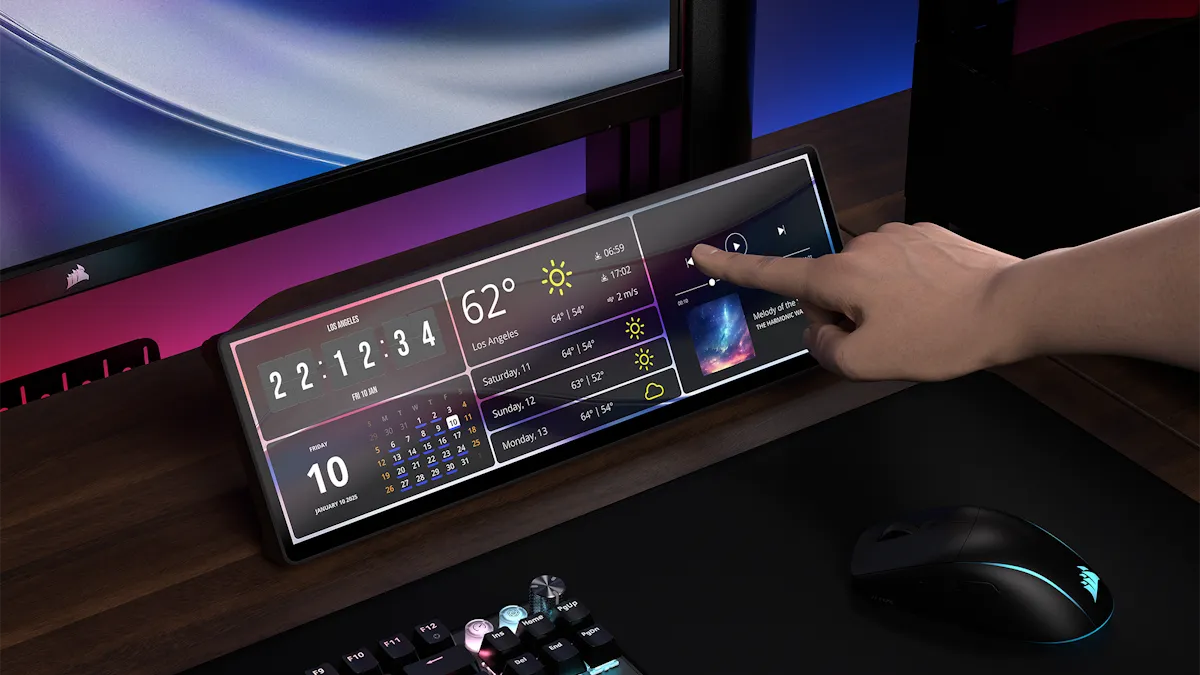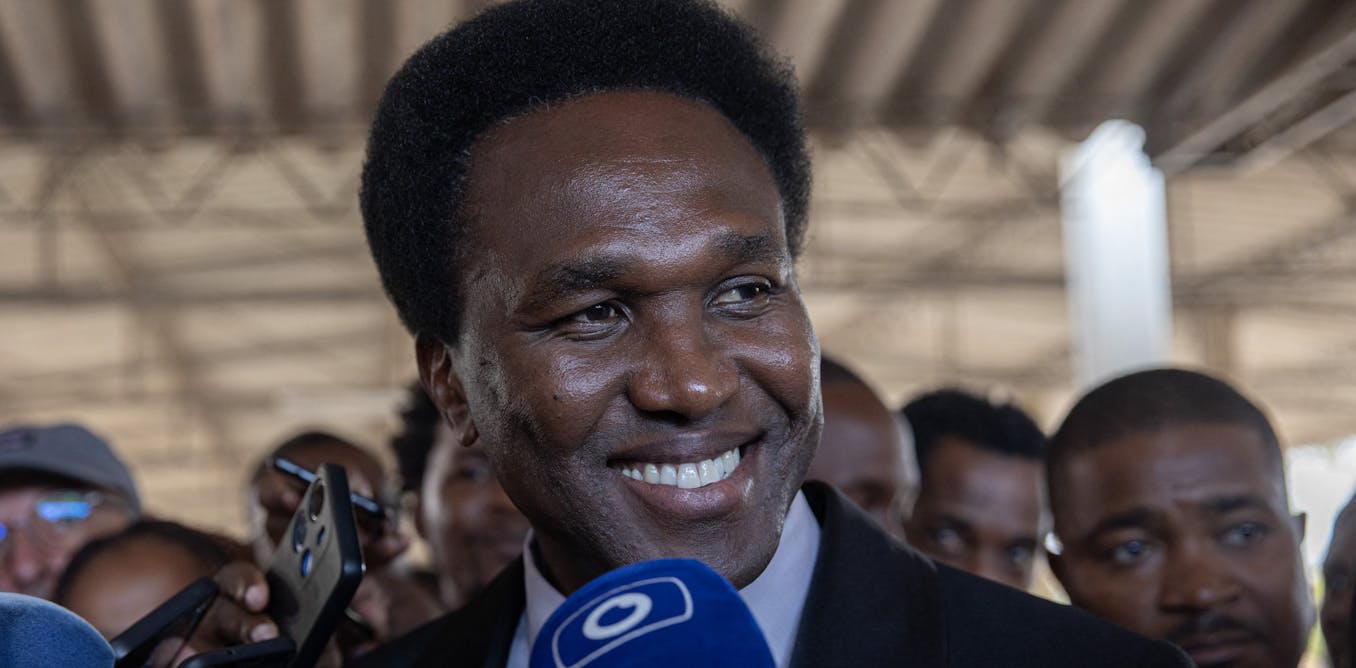Apple plans to start using processors made in America following the opening of an advanced new chip factory in Phoenix, Arizona.
For the plant’s customers, which also includes AMD and NVIDIA, the new facility means a more secure supply of chips and quicker production timelines. The chip fabricator, TSMC, also said today that it would start construction on a second factory in Phoenix next year, increasing the site’s annual output.
“These chips will power iPhones and MacBooks, as Tim Cook can attest,” President Joe Biden said at an event outside the Arizona factory on Tuesday. “Apple had to buy all the advanced chips from overseas. Now we’re going to do more of their supply chain here at home.”
Biden and Apple CEO Tim Cook were on hand in north Phoenix for TSMC’s “tool-in” ceremony, marking the arrival of production equipment to the first facility.
“A masterstroke and a game changing development for the industry”
The factory is a large, modern building surrounded by newly paved roads and cacti that survived the desert bulldozing. In its first public event, TSMC welcomed customers, employees, local leaders, and journalists to see its new factory, or at least the outside of it.
TSMC is a dedicated foundry, meaning it builds the chips designed by other companies. Apple, AMD and NVIDIA are among its largest customers, and even Intel relies on TSMC to make the most advanced processors.
The first Phoenix fab will make 4nm processors (improved from the originally disclosed 5nm), with production slated to begin in 2024. The second fab will come online in 2026 and produce 3nm chips, which are the smallest and most complex processors in production today.
All told, TSMC said it will invest $40 billion in its Arizona capacity, which is among the largest foreign direct investments ever made in US manufacturing. The two fabs will produce more than 600,000 wafers annually by 2026, which White House officials said will be enough to meet the entire US demand for advanced chips.
Top leadership from Apple, AMD, and NVIDIA confirmed on Tuesday that they would be among the first customers to buy chips from the new Arizona fabs.
“TSMC has become a global platform on which the world’s tech industry is built,” NVIDIA CEO Jensen Huang said. “Bringing TSMC investment to the United States is a masterstroke and a game changing development for the industry.”
The afternoon featured a slew of speakers hammering the gravity of TSMC coming to Arizona. Red-shirted TSMC employees dotted a crowd of about 200 people, and the speeches were so numerous there was even an intermission featuring a champagne toast to break things up.
Commerce Secretary Gina Raimondo, Arizona Senator Mark Kelly, and other members of Arizona’s Congressional delegation were also on hand for the ceremony. They were joined by business leaders including Micron CEO Sanjay Mehrotra, Microchip CEO Ganesh Moorthy, and TSMC founder Morris Chang.
TSMC customers did not disclose how many chips they plan to purchase from these fabs, but at 3nm and 4nm, the Arizona chips will be more advanced than what they currently use. Apple’s A16 chips used in iPhones 14 Pro and Pro Max and its M2 chips for MacBooks are both created with 5nm process technology.
Still, by the time these Arizona fabs are both up and running, TSMC will already be producing more advanced chips at overseas facilities. The company plans to produce 2nm chips by 2025, according to Nikkei Asia.
“The progress we’ve made with Apple Silicon has transformed our devices,” Cook said on Tuesday. “When you stop and think about it, it’s extraordinary what chip technology can achieve. And now, thanks to the hard work of so many people, these chips can be proudly stamped ‘Made in America.’”
The US is in the midst of a semiconductor manufacturing revival
The US is in the midst of a semiconductor manufacturing revival, inspired in part by snarled supply chains of the covid pandemic. The vast majority of the world’s semiconductors are produced in Asia with the US producing about 10 percent of the world’s semiconductors.
Apple has spent the past several years working to expand its supply chain beyond China to prevent possible disruptions in the future. It’s now producing some iPhones in India, and it’s looking to expand MacBook and Apple Watch production into Vietnam. The TSMC factories won’t mean full-scale iPhone production in the US, but they will provide critical components used in Apple products.
The semiconductor shortage cost Apple some $6 billion in lost sales, and the company has recently said it plans to buy more chips from Europe and US fabs to counter supply issues.
Recently, American politicians have pushed to reshore manufacturing to avoid reliance on other nations.
This reshoring vigor culminated in the CHIPS and Science Act, a legislative package that contains $52 billion for domestic chip production. Biden signed the bill into law in August, but the funding has yet to be disbursed.
The Commerce Department will allocate the money through its “Chips for America” program, starting next year. Foreign companies will be eligible for these incentives so long as they are building US production capacity, and TSMC has already publicly stated that it will apply for CHIPS funding.
Even without CHIPS funding, there are several major semiconductor projects underway.
Intel, America’s biggest chipmaker, has its largest manufacturing site in Chandler, a major suburb of Phoenix. The company is making progress on a $20 billion expansion at its Chandler campus, which will be fully operational in 2024.
Intel is also planning to build “the largest silicon manufacturing location on the planet” in Ohio, starting with a $20 billion investment. Intel has yet to disclose exactly what it will build in Ohio, but production is expected to begin in 2025.
Micron, which makes memory and storage chips, said in October that it will spend up to $100 billion to build a “megafab” in New York. In Texas, Samsung is investing $17 billion to expand its facilities in Austin in hopes of rivaling TSMC.
Chang, TSMC’s founder, said during his remarks that he had long dreamed of building in America and that TSMC’s current chairman, Mark Liu, is finally bringing that dream to life.
“My dream of 25 years ago will now be fulfilled by Mark.”
Photography by Andy Blye.










/cdn.vox-cdn.com/uploads/chorus_asset/file/24271962/Tim_Cook_TSMC_Arizona___12_6_2022.jpg)










Discussion about this post